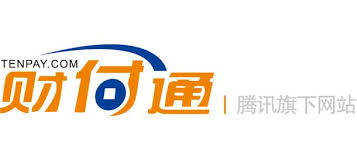PayPal Officially Entering China
- On October 8, 2019
- China online payment, China payment gateway
On the afternoon of September 30, 2019, China GoPay announced that the People’s Bank of China approved the GoPay equity change application. PayPal acquired a 70% stake in GoPay through its MeiYinBao, becoming the actual controller of GoPay and entering the Chinese payment service market. This also means that the payment institution giant PayPal officially won the domestic third-party payment license through the acquisition of equity, and entered the domestic market.



GoPay was established in January 2011 with a registered capital of approximately RMB 140 million. According to public information, GoPay was granted the Internet payment and mobile phone payment service license by the People’s Bank of China in December 2011. In 2015, it was granted a fund payment business license. In 2016, it was granted a cross-border RMB payment business license. In 2016, it was granted a prepaid card issuance and acceptance business license (Hainan, Shaanxi, Yunnan, Hunan and Beijing). The company mainly provides payment products and industry supporting solutions for e-commerce, cross-border commerce, aviation tourism and other industries.
The acquirer, MeiYinBao, is a wholly-owned company of PayPal. The company was established in August 2004 with a registered capital of approximately 1.48 billion yuan and is wholly-owned by PayPal. Its founder is still the current Silicon Valley red man, Tesla head Elon Musk. PayPal, which grew up in San Jose, Calif., since 1998, was only a service provider for e-commerce website loan payments in the early days, and then they developed into an inclusive financial payment institution by expanding a wider range of online users.
In 2002, PayPal went public on the NASDAQ, during which the payment company experienced a long process from the marriage of another payment giant, eBay, to the spin-off. After 2015, PayPal began its own independent development path and quickly opened the way to cooperate with overseas institutions to lay out international markets. Since 2016, PayPal has stepped up its efforts in cross-border cooperation, and has successively reached cooperation with international giants such as JP Morgan Chase, Samsung, Microsoft and Lenovo. To date, PayPal has supported transactions in 100 currencies in 202 countries and regions, and cash withdrawal services are available in 56 currencies.
In the above GoPay announcement, some of the information about Paypal is also mentioned. It is reported that Paypal is the world’s leading third-party payment company with more than 286 million active payment accounts.
However, the current third-party payment market is stable, and the two giants AliPay and TenPay are highly competitive. At this time, PayPal will enter the market. Will this change the status quo? In the already overcrowded Chinese payment market, how can the late PayPal find its own position and share?
At present, the competition is already in the third-party payment market in the Red Sea stage, especially in the case of AliPay and TenPay and the two giants behind Ali and Tencent. It is also doubtful how the late PayPal exerts its squid effect. The data shows that as of the end of 2018, TenPay and AliPay have a penetration rate of 86.4% and 70.9% respectively. The two giants have a large user base, and the penetration rate has reached 93.3%, an increase of 4.2 percentage points over 2017. Close to the overall user penetration rate of mobile payments (94.7%).
From the user’s point of view, PayPal may also become an important obstacle to its expansion of the market compared to China’s higher payment rates. According to PayPal China’s official website, there is no charge for shopping, but a small fee will be charged when using PayPal. China’s third-party payment companies have been hitting cheaper or even free cards, and the domestic rate of around 5‰ is far lower than the international level of 1.5-2%.
According to Frost & Sullivan, the mobile payment market in China will reach 96.7 trillion US dollars in 2023, which is close to 3 times of 2017 data. The monthly active user (MAU) will reach 956 million, nearly double the 2017 data.
Earlier, PayPal officials also said that they are not worried about the overcrowding of the Chinese market. From the publicly available information, PayPal’s future strategy is not directly and directly competitive with AliPay and TenPay, but seeks its own advantages and market through cross-border payment. Data show that China’s cross-border e-commerce transactions totaled 7.6 trillion yuan in 2018, an increase of 20.6% over 2017, far exceeding the growth rate of traditional international trade. The Chinese market contributes one-fifth of PayPal’s cross-border payment business, while cross-border payments account for 21% of its total business. As a foreign-funded payment giant with a high degree of internationalization and rich experience in cross-border payment, PayPal will concentrate resources on developing cross-border payments, and at the same time take advantage of the acquired payment agency GoPay, on the basis of which it fosters and differentiates.
With China, the world’s largest payment market, foreign giants are always focusing on opportunities. Today, the foreign capital holdings of domestic payment institutions are changing from restrictions to possibilities. This undoubtedly shows the new attitude of China’s financial market opening to the outside world: the access restrictions of foreign-funded payment institutions are ushering in the loosening period. In the eyes of the industry, PayPal’s entry into China is undoubtedly a landmark event.
